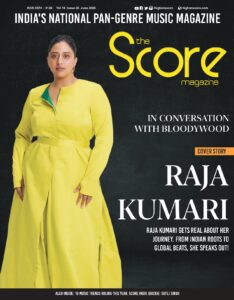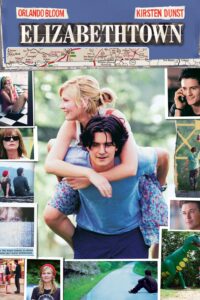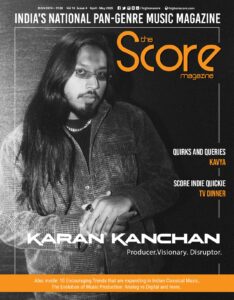Two Lost Souls (Taniya Nambiar):

The charts have long moved away from rock n’ roll. Perhaps just as well, as its origins were the twisted rhythms of the downtrodden. Blues, jazz, and African-American gospel music did not figure on Billboard. Rather, they served to externalise the inner lives of men and women who spent much of their existence under the boot of the powerful and brutal.
Still, recalling the authenticities of the genre is always a source of joy. Take Taniya Nambiar. Her debut single is firmly invested in the history of its sound. You can imagine the hours she put in listening to Chuck Berry, Elvis and maybe some Bee Gees? She creates extremely danceable music, combining her clear loyalties to rock with brushes of electronic tones. She does not bother to depend on machine-generated blips to keep her beat intact. Rather, she focuses on the kind of addictive ambience produced by actively played strings and effectively struck cymbals.
Take a moment to listen to Two Lost Souls. If nothing else, you will find assurance in the fact that rock n’ roll, as those of us knew it when MTV was more music and less Jersey Shore, is not dead. It’s just wearing a disguise.
Storm the Studio (Arshaq Malik):

I’ve always felt that concept albums or EPs are challenging for artists and reviewers alike. The artist might have exceptionally clear narratives in mind, and they might communicate it just fine. But given the predilections of individual listeners, it is possible for the story to be modified, disrupted or entirely disregarded. And while the diversity of interpretation is what gives humanity any colour, the idea that the stories carved into Rush’s 2112 or Bon Iver’s For Emma, Forever Ago might not be reaching us in their pristine originality is depressing.
I’m not sure what Arshaq Malik’s Storm the Studio attempts to speak of. It meanders with an ominous rhythm. Guttural tones mingle with an electronically bound march beat of sorts. The image of dystopia is clear, but you aren’t sure how it pans out. Are we talking street fights over a scrap of dry bread, or shadowed overlords keeping citizens drowsy and emotionally decrepit by dosing their beer with Haldol? Either way, the track builds significant anticipation for the upcoming four song EP ‘Andromeda 2050’ that it is part of. Apparently, it carries tales of good vs evil: rage, disdain and devastation are clear markers, if the single is anything to go by.
Storm the Studio deliciously embraces a gritty aftertone and turns in into neo-tribal half beats awash in cymbals and futuristic dread. Think the oppression of Dhalgren, but with streets lit up like Blade Runner.
Stand Still (Saltwater) :
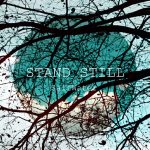
Clichés ring true more often than not. Musicians seeking stability in their sound when life sees fit to throw turbulence is a tiresome, common trope. But we are left with little to complain about if the resultant sound is good. In this case, it is sheer, soft, unimposing beauty.
Keyboardist Vyoma Shah and vocalist Medha Sahi met while teaching at Mumbai’s True School of Music. They realised that their musical tastes aligned, and turned their love of Norah Jones, John Mayer and Esperanza Spalding into collaborative composition. Their debut single reminds you of the joys of balmy winds and whispering leaves. Medha celebrates the desire to be still as the playful pleasantries of Vyoma’s keyboard materialise the theme in sound. The lightest percussive touch is sufficient to establish their disdain for the “rush” and the metaphorical “earthquake”.
“I’ve been running for a long time/Trying to leave the truth behind”. The lyrics are overtly straightforward without reliance on aimless poetics. It serves the purpose well, as the song is structured to peek into exhausted souls and offer them a gospel of endurance.
As they say “Don’t move, don’t/ Don’t break, Don’t break.”
Thoughts (Big Bang Blues):
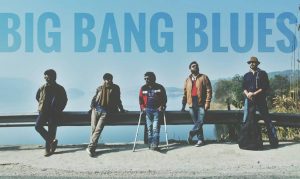
The men of Big Bang Blues have spent enormous amounts of time listening to BB King, Marvin Gaye and Muddy Waters. They admit as much in their interviews, but you wouldn’t have to hear them say it to know it. Their love for the swinging melancholy of field hollers and work songs that African slaves chanted to keep themselves afloat while being worked to the bone in cotton fields, is more than obvious. I wouldn’t be surprised if these guys mused over making a deal with the devil, much like Robert Johnson allegedly did.
Thoughts is a song of despair and hapless questioning, so anyone familiar with the blues should find it in recognisable territory. It asks pertinent questions: “Why are the children’s bags being checked?” and states uncomfortable facts: “People deciding which god is the best/ While the trees are being cut to build their nest”. Essentially, the track outlines the private ruminations self-aware and increasingly disillusioned human beings.
The sound is classic backwater blues interspersed with its close cousin (maybe once removed), rock n’ roll. While Diyatom Deb’s voice and accent certainly does not hail from Mississippi, they possess the grating lilt needed for songs of lost worlds. The last one minute delves into some clutter in order to promote a bombastic climax, but it quickly resolves itself. I couldn’t say I am overwhelmed with wonder, but Thoughts deserves to be heard. It invokes images of arid landscapes and failing lives, but does it within an arousing acoustic framework.
Garnet Eye (Calico):
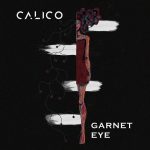
Calico is a band that I believe can make us fall in love with them. Their debut single is unceasingly delightful. Vocalist Ivan Imkong sounds like he would fit right into lantern-lit festivals on starlist beaches, the kind of place you go to with the intention of meeting poetic strangers sipping drinks whose names you have never heard of. His voice is half-mystique, half-tease. The instrumental arrangement is unutterably smooth; the musical equivalent of a glass of Glenmorangie (aged 15 years). Not a breath out of synchronicity, each note and syllable know their place and do their part to form a slick, roll-off-your-tongue sensibility. You are immediately drawn in, and I can promise you, if this song started playing just as you were about to leave, you’d stay and say “One more song”.
Words like “We turned ourselves to rust/Saw flowers turn to dust” leave you plenty to wonder about. I won’t try telling you what they are singing about, because I believe that the listener should be spinning their own stories. The band’s admission of what they have in mind mid-composition is open-ended, they also insist on keeping the open vulnerable to wide interpretation.
Garnet Eye combines the vague romp-like quality of a less mature Portishead with generous doses of luxurious R&B and funk. It exudes exceptional pleasantness, and you would be well influenced to do some swaying yourself.

